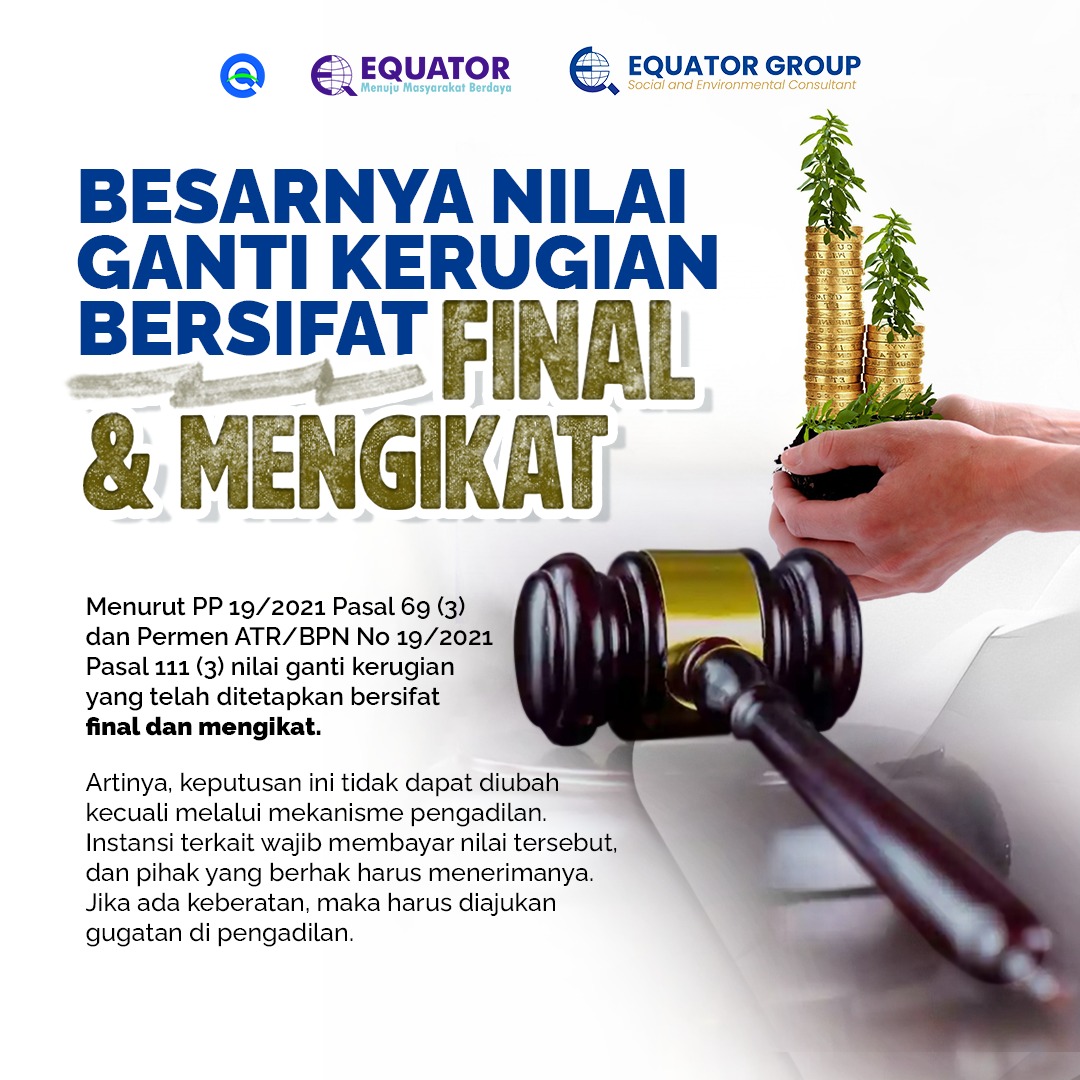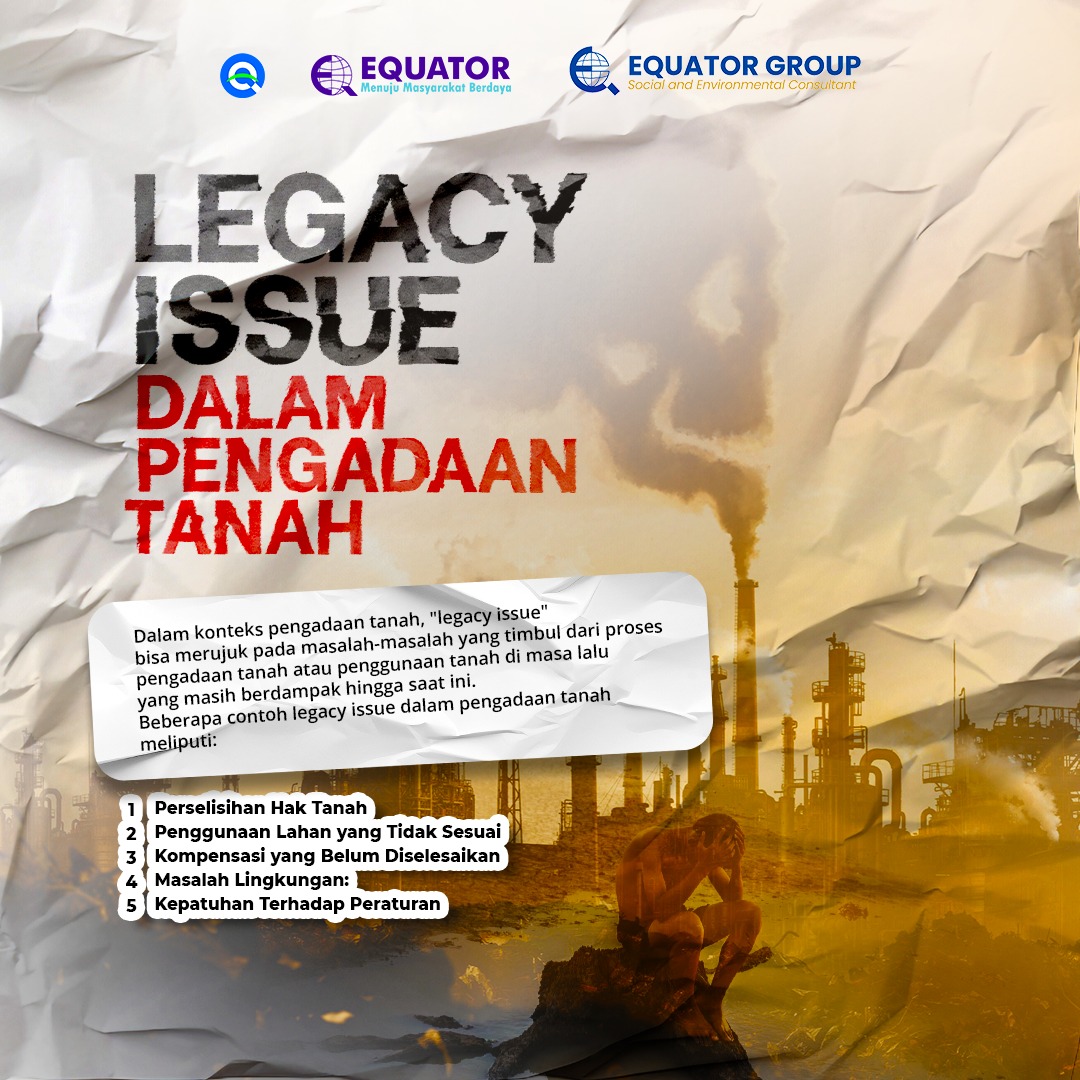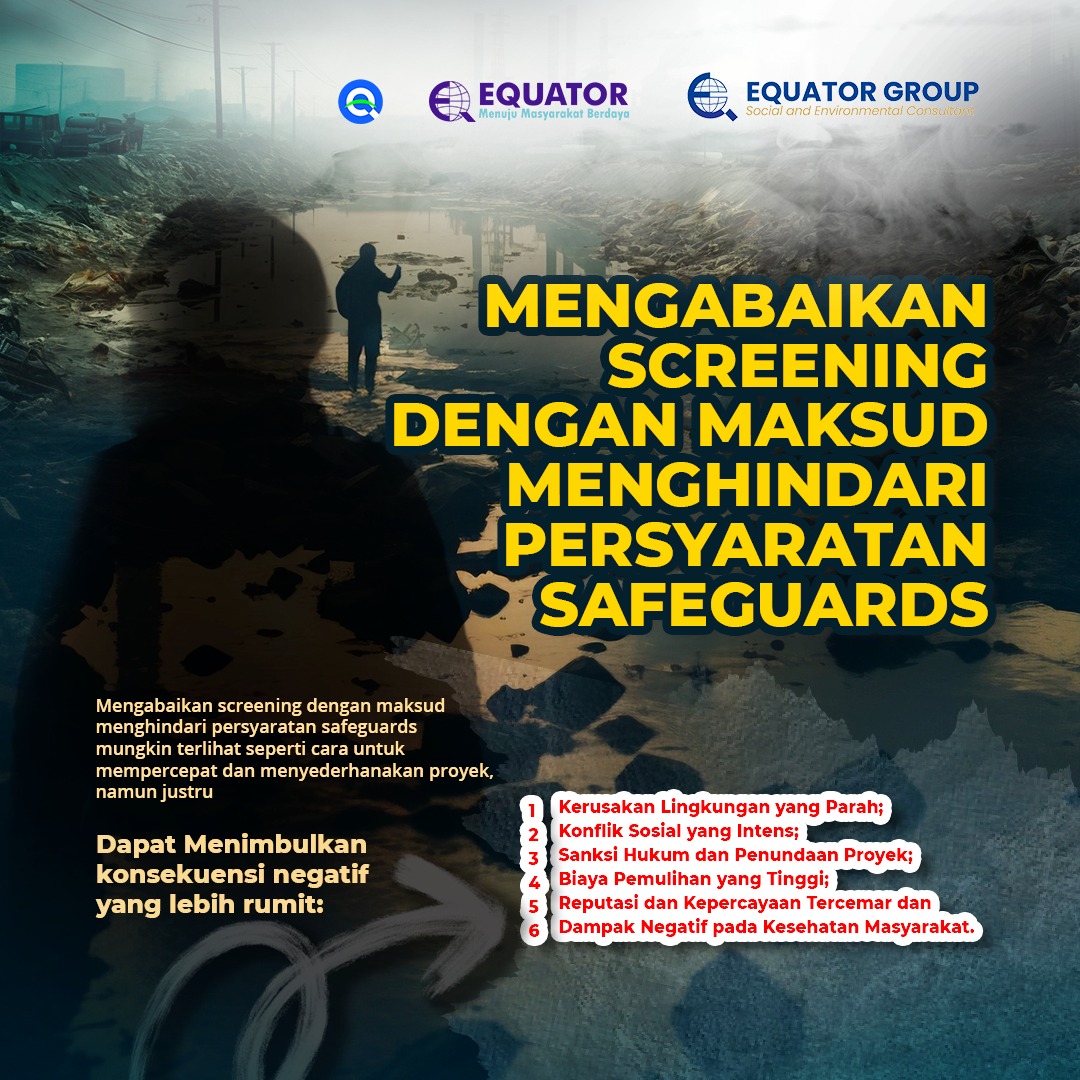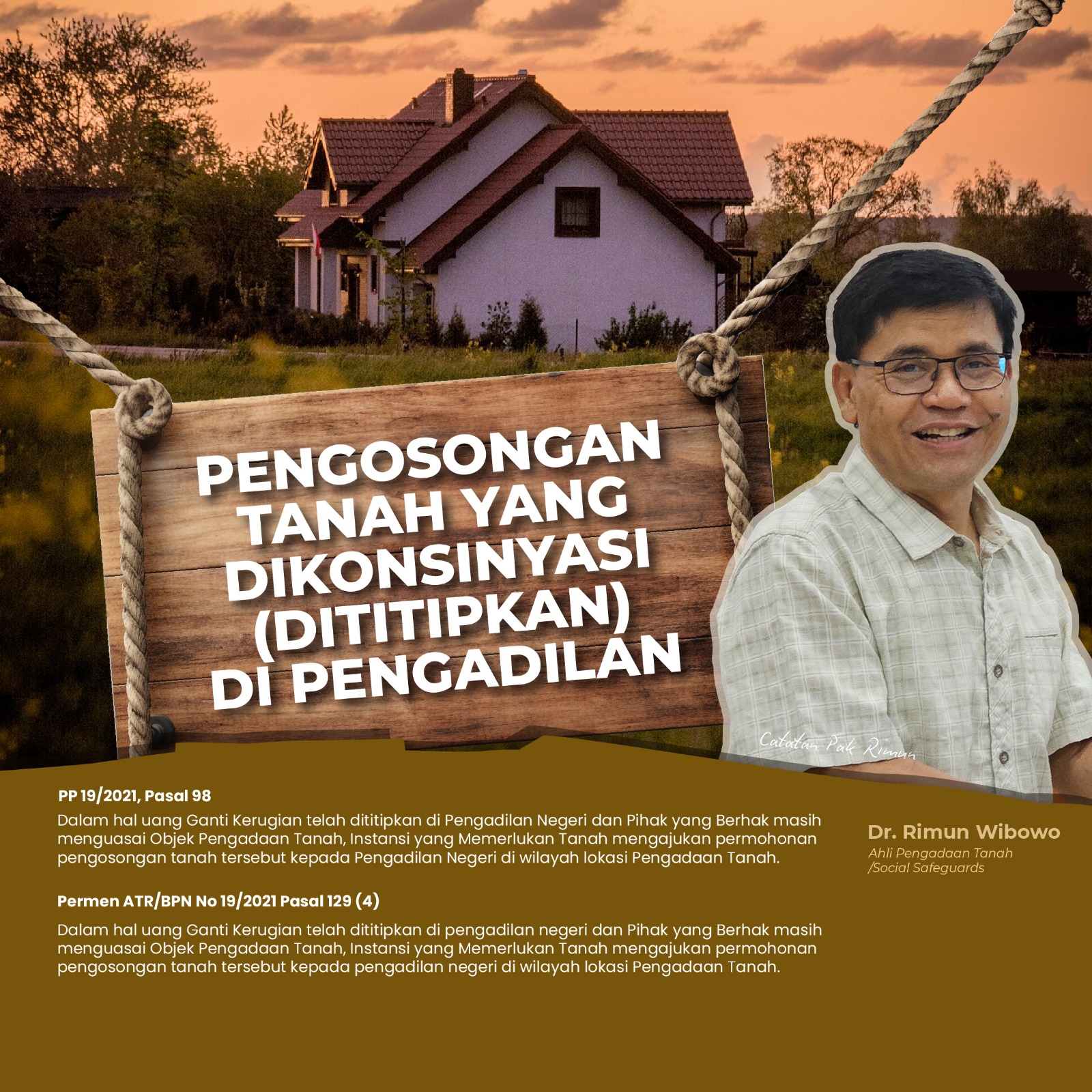



Prioritizing Justice: Protecting Vulnerable Communities in Land Acquisition
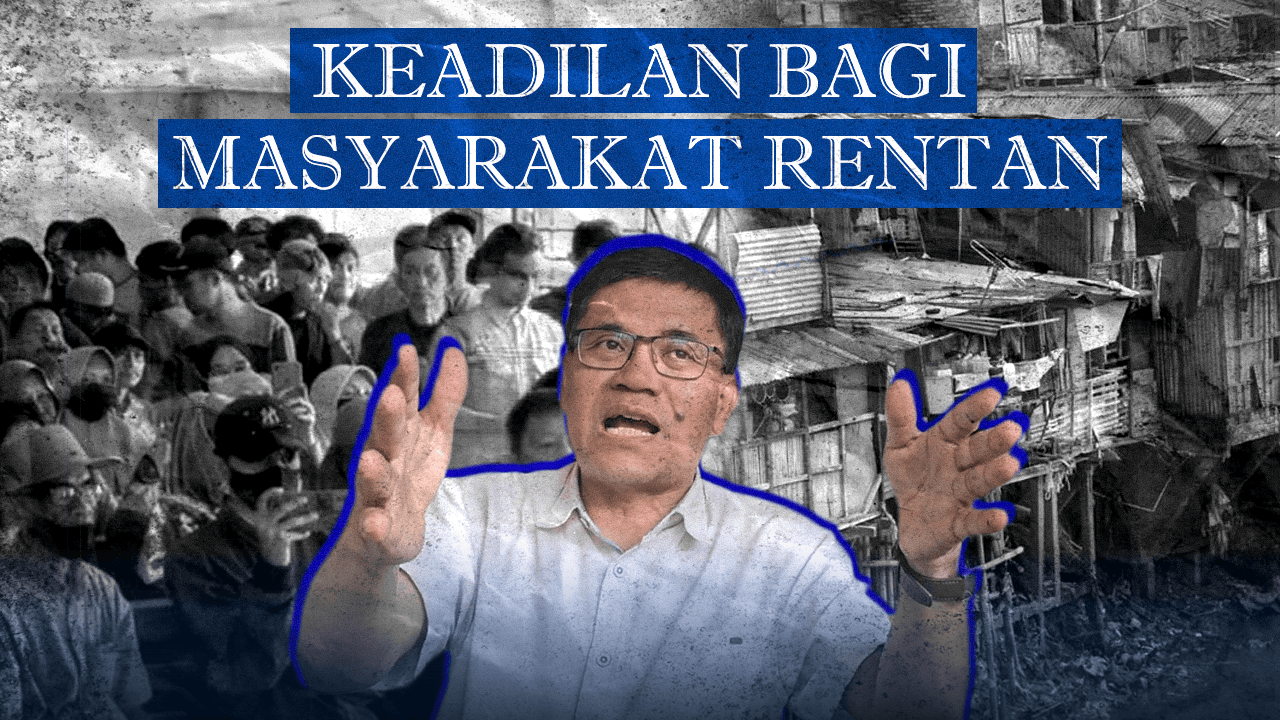
Prioritizing Justice: Protecting Vulnerable Communities in Land Acquisition
Land acquisition for development purposes often sparks debates about social justice and the protection of vulnerable communities. In this context, attention to compensation, governed by the fair replacement value (NPW) standard, is crucial but often insufficient to protect the rights of those most in need.
The NPW approach, conducted by licensed Public Appraisal Services Consultants (KJPP) under ATR/BPN, stipulates that replacement value must be fair and market-based. However, ironically, for those in fragile economic conditions, this value is inadequate to accommodate vital needs such as housing and daily living. A concrete example is seen in Ambon, where a 100 square meter plot of land, although appraised at a certain value, is insufficient to repurchase land or build a house after their original land is replaced.
This issue highlights a fundamental imbalance in the treatment of different economic strata. For the vulnerable, the impact of land acquisition is not only financially detrimental but also threatens their social stability and local economic sustainability.
The principles of land acquisition should not only consider economic and developmental interests but also provide adequate protection for those most in need. This requires more inclusive and solution-oriented regulations that clearly define who is entitled to compensation and how appropriate budget allocation can be managed.
Here, the role of the government, through relevant ministries such as the Ministry of Economic Affairs or the Coordinating Ministry for Economic Affairs (Menko Ekonomi), becomes crucial. They can strategically establish fair and comprehensive policies and wisely allocate budgets to ensure that the most affected communities receive proper protection.
Additionally, the presence of funds from international institutions like the Asian Development Bank (ADB) or World Bank through livelihood restoration programs should be effectively utilized to support local economic recovery and sustainable development.
Facing this complexity requires concrete steps to ensure that land acquisition policies not only create development opportunities but also maintain the social and economic integrity of the community as a whole. This is not just a technical issue but also about the humanitarian values and social justice that must always be upheld in every public policy decision.
Thus, fair and inclusive land acquisition management is not only a moral demand but also a long-term investment for social stability and sustainable economic growth.



